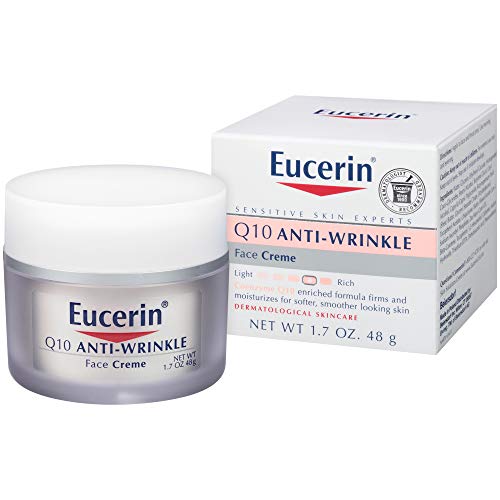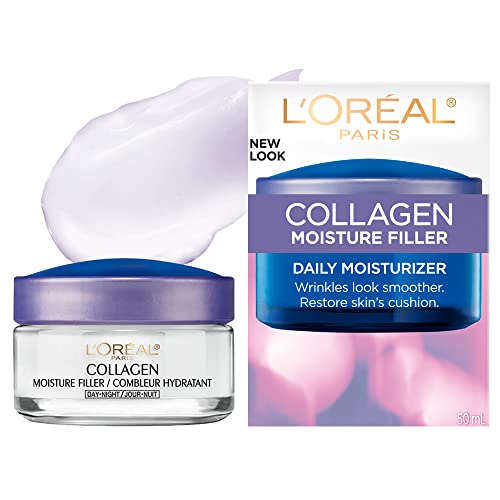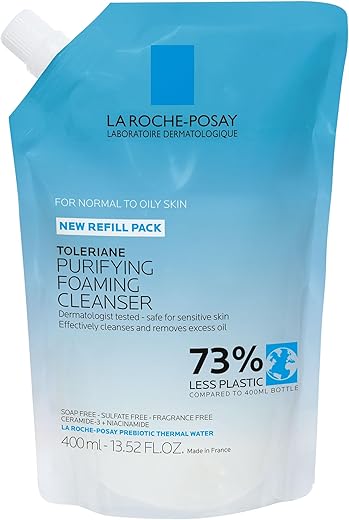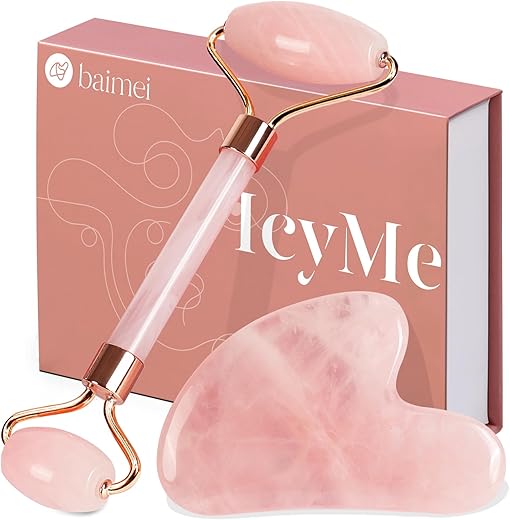
How to Choose the Right Face Anti-Wrinkle Cream for Your Skin Type
Are you tired of browsing through countless shelves of face anti-wrinkle creams, only to feel overwhelmed and confused about which one is right for your skin? We understand the struggle. With so many options available, it’s easy to feel lost and unsure about which product will truly deliver the results you’re looking for. But don’t worry, we’re here to help. In this blog post, we will guide you through the process of choosing the perfect face anti-wrinkle cream for your specific skin type. We want to empower you to make an informed decision and ultimately find a product that will effectively combat wrinkles and improve the overall health of your skin. So let’s dive in and discover the secrets to choosing the right face anti-wrinkle cream that will leave you feeling confident and rejuvenated.
Discover the Top-Rated Anti-Wrinkle Creams for Youthful and Radiant Skin






Understanding Different Skin Types
When it comes to choosing the right anti-wrinkle cream, understanding your skin type is crucial. Not all skin types are the same, and using the wrong product can lead to ineffective results or even skin irritation. In this blog post, we will delve into the different skin types and how they can impact your choice of anti-wrinkle cream. By identifying your skin type, you can make an informed decision and achieve the best possible results.



Oily Skin
Oily skin is characterized by excess sebum production, resulting in a shiny and greasy appearance. People with oily skin are more prone to acne and breakouts. When selecting an anti-wrinkle cream for oily skin, it is important to look for the following characteristics:
- Oil-free or non-comedogenic formulations: These products won’t clog pores or exacerbate acne.
- Lightweight textures: Lightweight creams are easily absorbed by the skin without leaving a greasy residue.
- Mattifying properties: Creams with mattifying properties help control excess oil production throughout the day.
Dry Skin
Dry skin lacks moisture and often feels tight and rough. It can be more prone to fine lines and wrinkles due to its limited ability to retain moisture. When choosing an anti-wrinkle cream for dry skin, consider the following factors:
- Hydrating ingredients: Look for creams that contain moisturizing ingredients such as hyaluronic acid or glycerin to replenish and lock in moisture.
- Rich and emollient textures: Creams with richer textures provide a barrier to prevent moisture loss and nourish dry skin.
- Anti-aging ingredients: Seek out creams with ingredients like retinol or peptides, which promote collagen production and improve skin elasticity.
Combination Skin
Combination skin is a mix of both oily and dry areas. The T-zone (forehead, nose, and chin) tends to be oily, while the cheeks are drier. When selecting an anti-wrinkle cream for combination skin, it’s important to find a balance. Look for the following features:
- Lightweight formulations: Lightweight creams won’t overwhelm oily areas, while still providing necessary moisture to drier areas.
- Non-greasy textures: Creams that don’t leave a greasy residue work well for combination skin, preventing excess oiliness in the T-zone.
- Dual-action ingredients: Seek out creams that address both oil control and hydration to cater to the different needs of combination skin.
Normal Skin
Normal skin is well-balanced, neither excessively oily nor overly dry. It has a smooth texture and minimal imperfections. Choosing an anti-wrinkle cream for normal skin offers more flexibility. Consider the following factors:
- Broad-spectrum protection: Look for creams with SPF to shield your skin from harmful UV rays and prevent premature aging.
- Multi-benefit formulations: Seek out creams that offer additional benefits, such as antioxidant protection or brightening properties.
- Lightweight or rich textures: Depending on personal preference, choose a texture that feels comfortable on the skin.
Identifying Your Skin Type
If you’re unsure about your skin type, there are a few key indicators to help you determine it:
- Oily skin: Frequent breakouts, enlarged pores, and a consistently shiny appearance.
- Dry skin: Tightness, roughness, and flakiness are common signs of dry skin.
- Combination skin: Oily T-zone with dry or normal cheeks.
- Normal skin: No significant skin concerns, with a balanced moisture level.
By understanding your skin type and its specific needs, you can narrow down the list of potential anti-wrinkle creams and find the one that suits you best. Remember, everyone’s skin is unique, so it may take some trial and error to find the perfect match.
Key Ingredients to Look for
When it comes to choosing an anti-wrinkle cream, it’s essential to look for specific key ingredients that have been proven to combat wrinkles effectively. These ingredients work to hydrate the skin, stimulate collagen production, and reduce the appearance of fine lines and wrinkles. In this blog section, we will discuss the essential ingredients that should be present in a face anti-wrinkle cream and how they can benefit different skin types.



Retinol: The Powerhouse Ingredient
Retinol is one of the most potent ingredients found in anti-wrinkle creams. It is a derivative of vitamin A and has been extensively studied for its ability to stimulate collagen production and increase cell turnover. Here are some key benefits of using a retinol-based cream:
- Reduces the appearance of fine lines and wrinkles.
- Improves skin texture and tone.
- Enhances skin elasticity.
- Fades dark spots and hyperpigmentation.
- Minimizes pore size.
It’s important to note that retinol can cause some initial skin irritation, so it’s recommended to start with a low concentration and gradually increase usage over time.
Hyaluronic Acid: The Ultimate Moisturizer
Hyaluronic acid is a powerful humectant that attracts and retains moisture in the skin. As we age, our skin’s natural hyaluronic acid levels decrease, leading to dryness and the formation of wrinkles. Including hyaluronic acid in your anti-wrinkle cream can provide the following benefits:
- Intensely hydrates the skin, giving it a plump and supple appearance.
- Smooths out fine lines and wrinkles caused by dehydration.
- Improves skin elasticity and firmness.
- Reduces the visibility of crow’s feet and laugh lines.
Since hyaluronic acid is suitable for all skin types, it’s a versatile ingredient that can benefit anyone seeking to combat wrinkles.
Peptides: The Building Blocks of Youthful Skin
Peptides are short chains of amino acids that act as messengers in the skin, signaling it to produce more collagen and elastin. Including peptides in your anti-wrinkle cream can provide the following benefits:
- Stimulates collagen production, resulting in firmer and plumper skin.
- Reduces the appearance of wrinkles and fine lines.
- Improves skin texture and tone.
- Enhances skin’s natural healing process.
Peptides are particularly beneficial for mature skin that has experienced a loss of firmness and elasticity.
Antioxidants: The Skin’s Best Defense
Antioxidants are substances that protect the skin from damage caused by free radicals, which are unstable molecules that can accelerate the aging process. Including antioxidants in your anti-wrinkle cream can provide the following benefits:
- Neutralizes free radicals and prevents oxidative stress.
- Reduces inflammation and redness.
- Repairs damaged skin cells.
- Enhances the skin’s natural defense mechanisms.
Some popular antioxidants to look for include vitamins C and E, green tea extract, and niacinamide.
Comparing the Benefits: A Quick Overview
To make it easier to understand the benefits of these key ingredients, here’s a comparison table:
| Ingredient | Key Benefits |
|---|---|
| Retinol | Reduces wrinkles, improves texture, fades dark spots |
| Hyaluronic Acid | Hydrates, plumps, improves elasticity |
| Peptides | Stimulates collagen, reduces wrinkles, improves texture |
| Antioxidants | Protects from free radicals, repairs, enhances defense |
Remember, while these ingredients are highly effective, it’s crucial to choose an anti-wrinkle cream that suits your skin type and addresses your specific concerns. Always perform a patch test before incorporating any new product into your skincare routine, and consult with a dermatologist if you have any underlying skin conditions or sensitivities.
With the right combination of these key ingredients, you can significantly improve the appearance of wrinkles and achieve smoother, younger-looking skin. So, make sure to check the ingredient list carefully next time you’re shopping for an anti-wrinkle cream and give your skin the nourishment it deserves.
Considerations for Sensitive Skin
Having sensitive skin can be a challenge when it comes to choosing the right skincare products, especially when it involves anti-wrinkle creams. Sensitive skin tends to react more easily to harsh ingredients, causing irritation, redness, and discomfort. In this blog section, we will provide you with some helpful tips and recommendations to consider when selecting an anti-wrinkle cream for sensitive skin, ensuring that you can effectively combat wrinkles without compromising your skin’s health.



Opt for Fragrance-Free Products
Fragrances are a common culprit when it comes to skin irritation, particularly for those with sensitive skin. Many anti-wrinkle creams contain added fragrances to enhance the product’s scent. However, these fragrances can cause allergic reactions and irritation in sensitive skin. Therefore, it is essential to opt for fragrance-free anti-wrinkle creams. Look for products that are specifically labeled as “fragrance-free” to ensure that no additional irritants are present.
Choose Hypoallergenic Formulas
Hypoallergenic products are specifically designed for individuals with sensitive skin. These products are formulated to minimize the risk of allergic reactions and skin irritation. When selecting an anti-wrinkle cream, look for those labeled as “hypoallergenic” to ensure that the ingredients used are less likely to cause any adverse reactions. These formulas undergo rigorous testing to ensure their safety, making them an ideal choice for sensitive skin.
Check for Gentle Ingredients
To minimize the risk of irritation, it’s crucial to choose anti-wrinkle creams that contain gentle ingredients. Avoid products that contain harsh chemicals and known irritants such as parabens, sulfates, and alcohol. Instead, look for creams that utilize natural and soothing ingredients that are known to be gentle on the skin. Some beneficial ingredients for sensitive skin include:
- Hyaluronic Acid: It helps to hydrate and plump the skin without causing irritation.
- Vitamin E: Known for its antioxidant properties, it helps to protect the skin from environmental damage.
- Aloe Vera: Soothes and calms the skin, reducing redness and inflammation.
- Green Tea Extract: Contains antioxidants that help to rejuvenate and protect the skin.
Conduct Patch Tests
Before applying any new anti-wrinkle cream to your entire face, it’s recommended to conduct a patch test. Apply a small amount of the product on a small area of your skin, preferably on your wrist or behind your ear, and wait for 24-48 hours. If no adverse reactions occur, such as redness, itching, or irritation, it should be safe to use the product on your face. This step can help you identify any potential allergic reactions before applying the cream to your entire face.
Consult with a Dermatologist
If you have extremely sensitive skin or have had previous adverse reactions to skincare products, it’s advisable to consult with a dermatologist. A dermatologist can assess your skin type and recommend specific anti-wrinkle creams that are suitable for your sensitive skin. They can also provide personalized advice and guidance on how to care for your skin effectively.
Finding the Right Texture and Formulation
When it comes to selecting a face anti-wrinkle cream, the texture and formulation are crucial factors to consider. The right texture and formulation can greatly impact the cream’s effectiveness in reducing wrinkles and its compatibility with different skin types. In this section, we will guide you on choosing the right texture and formulation based on your skin type and personal preferences.



Understanding Different Textures
- Cream: Creams are the most common texture for anti-wrinkle creams. They are rich and moisturizing, making them suitable for dry and mature skin. Creams provide a protective barrier and help to deeply hydrate the skin.
- Gel: Gels have a lightweight and cooling texture, making them ideal for oily and combination skin. They are quickly absorbed and leave a refreshing sensation on the skin.
- Serum: Serums have a lightweight and fluid texture, allowing for deeper penetration of active ingredients. They are suitable for all skin types and can be applied before moisturizers for enhanced results.
Choosing the Right Formulation
- Lightweight Formulation: Lightweight formulations are perfect for those with oily or acne-prone skin as they are less likely to clog pores. They absorb quickly and leave a matte finish on the skin.
- Rich Formulation: If you have dry or mature skin, a rich formulation is ideal. These creams provide intense hydration and nourishment, helping to plump and smooth out wrinkles.
Considerations for Different Skin Types
- Dry Skin: Look for creams with rich formulations that contain moisturizing ingredients such as hyaluronic acid and shea butter. These ingredients help to replenish moisture and restore the skin’s natural barrier.
- Oily Skin: Opt for lightweight gel or serum formulations that are oil-free and non-comedogenic. Look for ingredients like salicylic acid or niacinamide that help control excess oil and minimize the appearance of pores.
- Combination Skin: A lightweight texture like gels or serums is suitable for combination skin. Choose a cream with a balanced formulation that provides hydration without being too heavy.
- Sensitive Skin: Consider hypoallergenic and fragrance-free options to minimize the risk of irritation. Look for creams with soothing ingredients like aloe vera or chamomile extract.
Key Points to Consider:
- Creams are suitable for dry and mature skin, gels for oily skin, and serums for all skin types.
- Lightweight formulations work well for oily and acne-prone skin, while rich formulations are ideal for dry and mature skin.
- Dry skin benefits from moisturizing ingredients like hyaluronic acid and shea butter, while oily skin benefits from oil-controlling ingredients like salicylic acid.
- Combination skin should opt for balanced formulations, and sensitive skin should consider hypoallergenic and fragrance-free options.
Remember, finding the right texture and formulation for your anti-wrinkle cream is essential to ensure maximum effectiveness and compatibility with your skin type. By considering your skin’s unique needs and preferences, you can choose a cream that will help you achieve a smoother, more youthful complexion.
Making the Right Choice for Youthful Skin
In conclusion, choosing the right face anti-wrinkle cream involves knowing your skin type, ingredients, sensitivity, and texture. By considering these factors, you can find a cream that suits your needs and promotes youthful and healthy skin.

Hey, I’m Ava Wilson—a skincare enthusiast and a certified esthetician. I’m dedicated to sharing my knowledge and empowering others to achieve healthy, glowing skin through simple, effective routines and natural remedies. Join me on this exciting skincare journey, and let’s unlock your skin’s potential for a confident, beautiful you.





